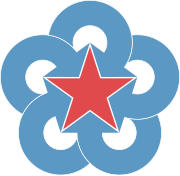
The Galician Nationalist Bloc is a political party from Galicia, formed with the merger of a series of left-wing Galician nationalist parties. It is self-defined as a "patriotic front".
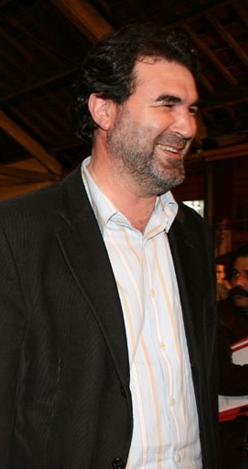
Anxo Manuel Quintana González, commonly known as Anxo Quintana, is the former leader of the Galician Nationalist Bloc, the main nationalist party in Galicia. From 2005 to 2009 he was a partner in the Galician Government, holding the positions of Vice-President and Minister for Social Affairs.
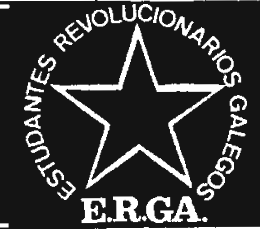
Galician Revolutionary Students was a leftwing nationalist students organization in Galicia, Spain. ERGA functioned as the students wing of the Galician People's Union (UPG). ERGA was founded in 1972. ERGA published a monthly, Lume. ERGA was the first mass organization of nationalism after the Spanish Civil War, got a broad presence in the universities and high schools of Galiza and formed future UPG leaders and militants.
Galician Workers' Party was a political party in Galicia, Spain.
The Galician People's Union is a Galician nationalist and communist political party, and is one of the registered political parties of Spain. The party publishes the magazine Terra e Tempo, and the secretary general is Néstor Rego.

The Galician People's Party was a Galician political party in the first years of the Spanish democracy.
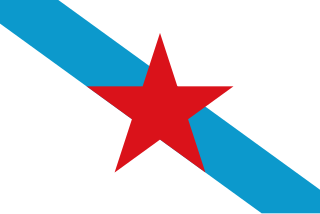
Galician nationalism is a form of nationalism found mostly in Galicia, which asserts that Galicians are a nation and that promotes the cultural unity of Galicians. The political movement referred to as modern Galician nationalism was born at the beginning of the twentieth century from the idea of Galicianism.
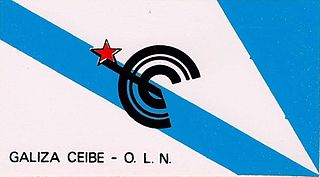
Galiza Ceibe-OLN was an independentist and socialist political party in Galicia, Spain. Galiza Ceibe was founded on 1980 by the Galician Party of the Proletariat as a political and electoral front, originally to present a list in Vigo and in other galician municipalities under the name Agrupación Electoral Galicia Ceibe in the 1979 local elections.

The National Inter-Union of the Galician Workers was a Galician union with an anticapitalist, leftist and Galician nationalist ideology, direct heir of the Intersindical Nacional Galega (ING), and precursor of Confederación Intersindical Galega (CIG).

The Galician Socialist Party–Galician Left was a Galician nationalist and left-wing party of Galiza.

The Galician Socialist Party was a socialist and Galician nationalist political party active in Galicia.
The Galician Social Democratic Party was a Galician political party with a Galician nationalist and social democratic ideology.
The Nationalist Galicianist Party (PGN or PG(N), Partido Galeguista Nacionalista or Partido Galeguista (Nacionalista) in Galician language) was a Galician nationalist party founded in 1984.
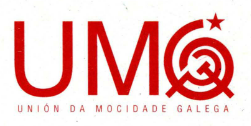
The Galician Youth Union is the youth wing of the Galician People's Union. It was created in August 1977.
The Socialist Collective was a Galician political organization that was part of the Galician Nationalist Bloc (BNG).
Galician Solidarity was a Galician regionalist political organization active between 1907 and 1912.

Galician Coalition is a political party in Galicia, Spain with a Galician nationalist and centrist ideology. Since 2012 CG is part of the coalition Compromiso por Galicia.
Communist Movement of Galicia was a communist political party created in Galicia during the last years of the dictatorship of Franco as the Galician section of the Communist Movement, although in practice the MCG acted as an independent party. The leaders of the MCG were Xesús Veiga Buxán and Carmen Santos Castroviejo. Unlike other sections of Spanish left-wing political parties, the MCG was close to the Galician nationalist movement and supported self-determination and national sovereignty for Galicia.
Galician Unity was a Galician nationalist and democratic socialist party formed by the Galician Socialist Party-Galician Left (PSG-EG) in 1991.

Lidia Senra Rodríguez is an agrarian and political unionist from Galicia. She was secretary general of the Sindicato Labrego Galego (SLG) for 18 years and, since 2014, has been a Member of the European Parliament.
